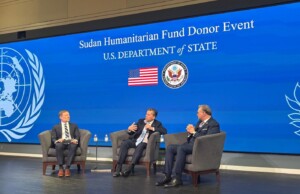Sudan press banned from reporting on fuel crisis
The National Intelligence and Security Service (NISS) has forbidden newspapers in Sudan from publishing any material related to the fuel crisis that has impacted the entire country for several months.

The National Intelligence and Security Service (NISS) has forbidden newspapers in Sudan from publishing any material related to the fuel crisis that has impacted the entire country for several months.
The NISS ban includes writing about protests and demonstrations or “negatively writing about goods”.
In a directive to the editors of newspapers, the NISS called on them not to cover the crisis, but “to be satisfied with the official statements issued by the government on these topics”.
Yesterday, the Sudanese Journalists Network said in a statement that in order to continue to block information from public opinion, the newspapers were banned from dealing with the dire fuel crisis that has prevailed in the country for some time.
The network said the directive came as part of a series of bannings of the Sudanese press from dealing with the country's crises.
In its statement, the network expressed concern about ongoing and systematic violations by the security services as documented by international reports.
A countrywide fuel shortage has forced grain mills to shut-down and water pumping engines to fall silent in many states of Sudan, especially in the most remote areas.
The fuel crisis in most Sudanese states including Kordofan, Darfur, the Eastern states has created problems in access to water, consumer goods and transportation.
It is worth noting that Sudan is ranked 174th in the world according to the Reporters without Borders (RSF) index on press freedom.











 and then
and then